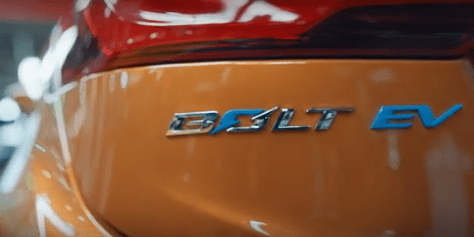As part of Montgomery County’s commitment to achieving energy efficiency, the county purchased 16 new Chevrolet Bolt electric vehicles (EVs) – at a cost of $622,254.40 – that will be used by the Montgomery County Department of General Services (DGS) and other agencies for miscellaneous purposes.
During the Maryland county’s recent GreenFest celebration, Montgomery County Executive Ike Leggett revealed its first Chevrolet Bolt EV, which boasts more than 200 miles of range.
“I am committed to modernizing this government while lowering our carbon footprint,” says Leggett. “I want to modernize the buildings, equipment, vehicles and other resources available to the men and women who serve this county every day. What we are showing today is an important step in a larger effort to expand the county fleet of alternatively fueled vehicles and equipment over the next several years.”
The county will be replacing 15 Chevrolet Cavaliers and Cobalts and a Toyota Prius with 16 new Chevy Bolts, fully electric-powered vehicles that utilize energy stored in a lithium-ion battery pack produced by LG Chem.
“These electric vehicles reinforce General Services’ ongoing plan to reduce environmental impact by maximizing the use of low- and no-emission vehicles while significantly lowering maintenance costs,” says DGS Director David Dise. “This purchase is evidence of our plan to increase the use of electric vehicles and expand charging stations at county buildings.”
According to the U.S. Environmental Protection Agency (EPA), the Bolt EV has achieved an EPA-Certified SmartWay Elite status with a greenhouse-gas (GHG) rating of 10 and, with no tailpipe emissions, a minimum smog rating of “10” – a vehicle with a “1” produces the most emissions, and a “10” produces no emissions.
By comparison, a 2002 Chevrolet Cavalier, being replaced by a new Bolt EV, has a GHG rating of 7, which translates to 274-312 grams/mile of carbon dioxide emitted from the tailpipe. The vehicles being replaced by the Bolt EVs traveled approximately 1,300,000 miles. At an average of 293 grams/mile of carbon dioxide, that amounts to about 420 tons of carbon dioxide emitted into the county’s air by 15 gasoline-burning automobiles since 2002.
As reported, the vehicles being replaced used approximately 56,900 gallons during their lifetime, at a cost of $133,000. The 2002 Cavalier traveled, on average, about 230 miles on a tank of fuel. The Bolt EV uses no gasoline and can travel an EPA-estimated 238 miles on a full electric charge.
With these 16 Bolts, the county will have a total of 243 electric and gasoline/electric hybrid vehicles with 29 charging stations. The DGS also installed idle-reduction software on 35 additional vehicles and has realized a 5% increase in fuel economy on those vehicles.





